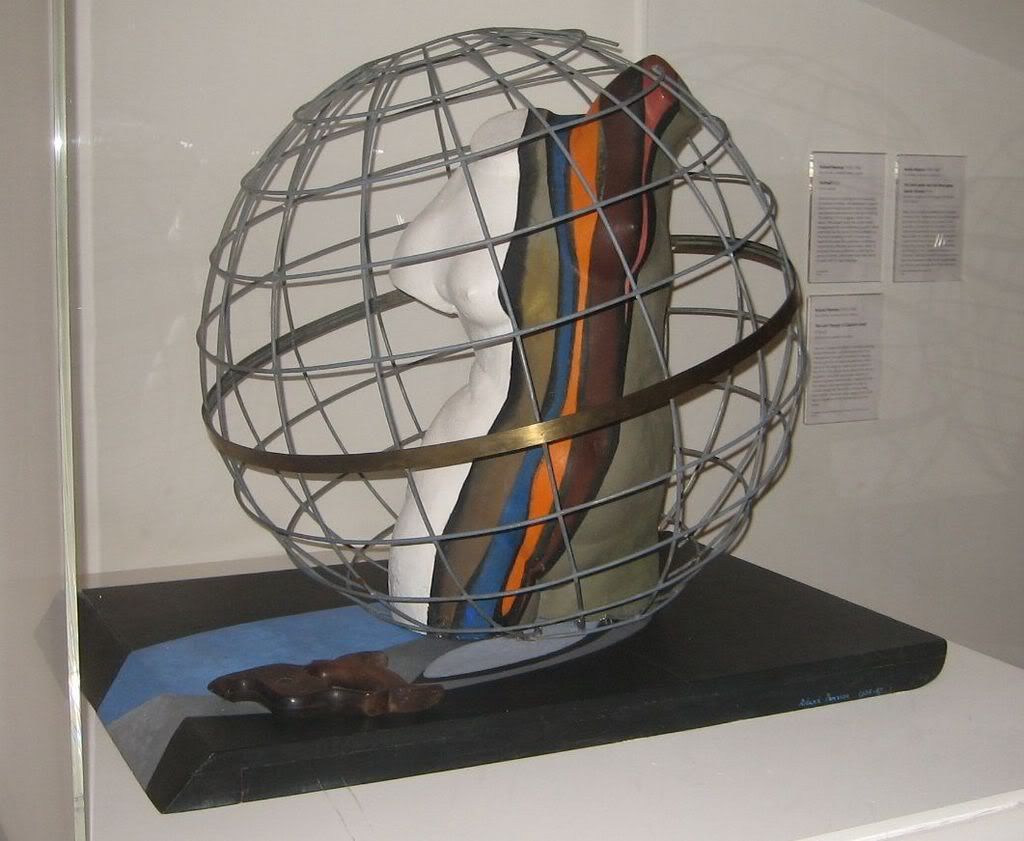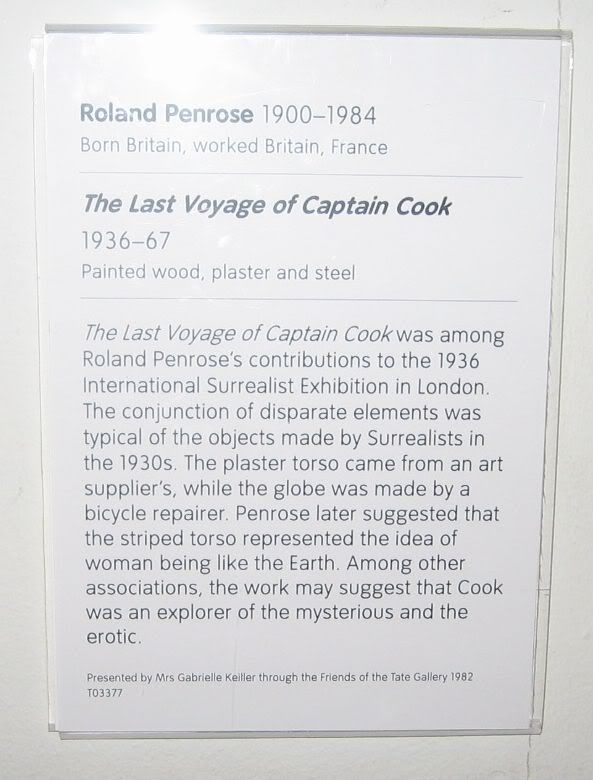Speaking of, I made a Sex Pixie:

I believe that wisdom is in the body - wisdom, joy, sadness, truth, there's a physical accompaniment to all of it, and I often find it easier to connect to that than to the rest of it. I get distracted by the abstracts and dream-reals easily; I think that's how the world is, that if you're engaged with one thing you're inevitably drawn to its opposite. A foot on the ground is a head in a cloud, no disjunct.
Verte told me a while ago of a sweet group exercise in which people were asked to point to the body part in which their 'self' resided. Most went to the head; she to her heart; her sparkliness has said such things about hands; my More Pretentiouser Than Thou Pseudo-pagan self would've gestured to the spinal cord, but here in the real world life seems to come from my feet.
And where are my feet, lately? In limbo.
My new US visa arrived by courier on Monday - it is in a giant yellow envelope I am not allowed to open, that will not be opened until I reach the border; it came with an inevitable feeling of carefully treading in Orpheus's footprints. I run circles around my neighbourhood in old, broken shoes; I'm trapped, waiting for January, and ashamed of it. I really am. That shame is why a lot of things are hard to say - it's like navigating around a great pit, always worrying if I'll fall, if I'll be pushed -
I've been wanting to talk about what V said, about neighbours. I could call it something I learned from early-life Christianity - I mean, it's right there in Matthew 25 -
"Come, you whom my Father has blessed, take for your heritage the kingdom prepared for you since the foundation of the world. For I was hungry and you gave me food; I was thirsty and you gave me drink; I was a stranger and you made me welcome; naked and you clothed me, sick and you visited me, in prison and you came to see me." Then the virtuous will say to him in reply, "Lord, when did we see you hungry and feed you; or thirsty and give you drink? When did we see you a stranger and make you welcome; naked and clothe you; sick or in prison and go to see you?" And the King will answer, "I tell you solemnly, in so far as you did this to one of the least of these brothers of mine, you did it to me."
- but really, I think I feel that way because I learned it with my feet.
Those of you who've been reading a while will know that my adolescence was needlessly chaotic, that I was never a teenager like other teenagers, that I was sore and stupid about it the whole time - but that wasn't the start of the crazy by any means. It started with a house. The one my parents should've built, but didn't.
They met in London, where the eldest and I were born, but both had grown up in the same general area of the Pennines - I don't know why they moved back there, maybe for family, who died, or out of nostalgia. Maybe anywhere they settled would've been as much of a disaster. It was a quarter-acre plot of land with an old barn on it, in the middle of a village (a village of the 25-houses-1-pub-1-church model, with a river running through it and roads that led to three others like it, though I'm told that many decades ago it had a butcher and a baker). It was meant to be something - house, extension, garden, hearth and home; what it became was shame, stray cats, petty fights over never-enough hot water, a coal fire to huddle by, always a mess, never my space, never happy. Where it worked, it was beautiful. I sometimes made spaces, took the well-lit never-used upstairs living room, cleared it and turned cartwheels there, had a folding table and an inherited dining chair. It got good after midnight, or when I was skipping school, but in the evenings you could hear the television blaring through the thin wood floorboards, hear my father speaking to it as if he were trying to cow some petty demon. It didn't work. The house did not work.
When I whined about The Cement Garden, that was part of why; the physical isolation was a real force in my life back then, almost as real as death itself. The 'garden' was vast, untended, and full of the rubbish of construction - a bit of an adventure to a child, turning offcuts of wood into flimsy treehouses and playing with cats in the long grass - but to a motherless adolescent with a younger child to fail to care for, a household to slipshodly run, a thwarted want to eke out some kind of life in that grey place? Every stone was its weight in shame. Alchemilla molis overran the flower patch - I planted salvias, but the slugs took them within days, and any upkeep my mother had done was lost, though there were still roses. Compassions. I cut their withered heads off when necessary.
I remember walking to the river that Saturday night, taking off my shoes and putting my bare feet in the water, talking to the half-moon, trying to make myself and my life over in response to the crisis in my mind; if I'm back there any time soon, as I sadly think I must be, I am going to do that again.
I remember breaking a toe on the pitch-pine stairs that snaked all around the hallway.
It was too wrecked and shameful for friends - I rarely asked them back. My gamers came, but strange-smelling ruins are cool for PnP. I never felt I could just say 'this is my space, I want to share it with you' to anyone - it wasn't anyone's space, it was a monster. Once I wanted to share my place with a friend badly enough that instead of asking him there, I asked him to my sister's home in London, 250 miles south. (Thus began the unholy triumvirate, a merry thing that violates all your nuclear-family logic, but is another story, and not really mine to tell).
I didn't have many people anyway - I was difficult, angry, had nothing positive to offer but dreams, so there's no one to blame for that. One of the few who was consistently kind and welcoming to me, who noticed when I was sad and such, turned out to be a complete and crazy prick to everyone else in the world, and is still being hurtful to others I knew then, six years later; what am I to make of that, that he terrorised good people who, themselves, wouldn't've given me the time of day?
Did I mention my sister's home is the same one my parents used to have? It's a small place (well, it's dandy for us, even when all three of us are here, but didn't do for parents with three young children), and the lease was controlled, and they made their own house so had no mortgage, and our father talked his company into making use of it sometimes and paying some of the rent - they didn't want to let it go. Now we live here, behind a mountain of unsolicited mail from Foxtons begging us to move the hell out. I'd planned to move in the day after I finished sixth-form; what happened is that a month before that, a rooftop fire destroyed the attic above these four rooms and the burned-out roofspace fell through into two of them.
It was a trauma, especially after all the other living-space issues we'd had, but I confess that I am glad we had that one clean break from the past; I remember standing in the soot and broken tiles, on a treasure hunt a few weeks after the fire, and seeing a shard of that aggravatingly low glass light fitting, the one he was forever banging his head into, and laughing. I'm glad I got to see the sky inside this place, got to know how insubstantial home is. I don't know about the rest of us, but to me that was worth the cost - in fact, the cost was worth the cost, if you get me. Home shunted from place to place during 2003, and somewhere in the middle it slid into the space-between-spaces that swallowed the bulk of that year, but that is a story for another day, or maybe never.
Having a place to live in, to me, means having a place to share. Dignity is an uncluttered floor with a rug on it; a kitchen I can cope with being in; spare blankets for my friends. I've a craving to give and to care and to shelter friends from the cold - and that does not make me a good person by any account, abstract arguments about true altruism aside, because it's too satisfying and it too easily makes up for something I formerly couldn't have. So I give - sure, sometimes I have to come up with dinner for seven on the fly, and I never know where to keep all the duvets, but to be prepared to love, to have such tools and raw materials at hand and to keep a tidy workshop for the craft of loving, is not my gift to you. It's your gift to me. It's proof that I escaped and that I can do better now.




